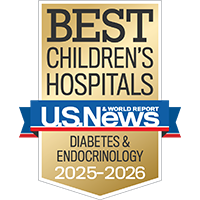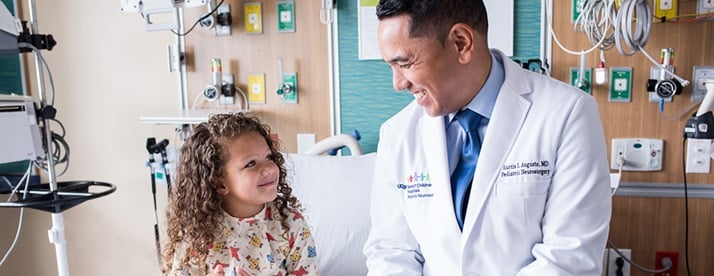
At-Risk for T1D Clinic
At the UCSF At-Risk for T1D Clinic, we care for patients at high risk of developing type 1 diabetes, or T1D. By detecting early signs of T1D and taking proactive measures, we can slow its progression and delay the need for insulin therapy.
Understanding the stages of T1D
Type 1 diabetes develops gradually over three stages:
- Stage 1: early immune response. At this stage, the immune system begins destroying beta cells (insulin-producing cells in the pancreas). Although patients don't have noticeable symptoms yet, we can detect this stage by testing a blood sample for autoantibodies; a positive result indicates the body is attacking itself. Autoantibodies are often found in patients with type 1 diabetes but not in those with type 2 diabetes.
- Stage 2: abnormal blood sugar levels. Blood sugar levels rise into the prediabetes range, although there are still no symptoms of diabetes. Proactive treatment at this stage can delay the need for insulin therapy.
- Stage 3: symptoms. As insulin production declines, diabetes symptoms – such as excessive thirst, frequent urination and weight loss – appear. At this point, most patients need insulin therapy.
Why early testing matters
If your child is at risk for T1D – whether due to family history or a positive autoantibody test – early detection is key. Treatments, such as the immune therapy teplizumab (Tzield), can slow T1D progression, giving patients more time before needing to start insulin therapy.
If you have concerns about type 1 diabetes risk, contact us as soon as possible. Early detection can make a lasting difference in your child's health.
Our locations (1)
Our team
Awards & recognition
-

Ranked among the nation's best in 11 specialties
-

One of the nation's best for endocrinology & diabetes care
-

Center of excellence for diabetes research (Juvenile Diabetes Research Foundation)
Plan your visit
What to Bring
- Photo I.D.
- Health insurance card
- Insurance authorization, if required
- Doctor's referral, if required
- Recent test results related to your child's condition
- List of medications, including dosages, plus any your child is allergic to
- List of questions you may have
- Device or paper for taking notes
Tender wagging care
Our therapy dogs spread joy and smiles at the bedside and throughout the hospital.
Visit Child Life services

































